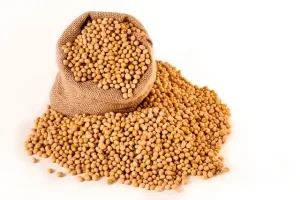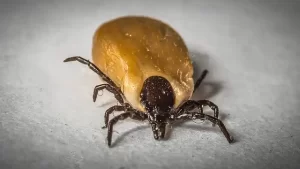Whole grain food may prevent colorectal cancer!
- Engineered Soybeans with Pig Protein: A Promising Alternative or Pandora’s Dish?
- Severe Fever with Thrombocytopenia Syndrome (SFTS): A Tick-Borne Threat with High Mortality
- Why Isolating Bananas Extends Their Shelf Life?
- This common vitamin benefits the brain and prevents cognitive decline
- New report reveals Nestlé adding sugar to infant formula sold in poor countries
- Did Cloud Seeding Unleash a Deluge in Dubai?
Research on 500K people: Whole grain food may prevent colorectal cancer!
- Red Yeast Rice Scare Grips Japan: Over 114 Hospitalized and 5 Deaths
- Long COVID Brain Fog: Blood-Brain Barrier Damage and Persistent Inflammation
- FDA has mandated a top-level black box warning for all marketed CAR-T therapies
- Can people with high blood pressure eat peanuts?
- What is the difference between dopamine and dobutamine?
- How long can the patient live after heart stent surgery?
Research on 500K people: Whole grain food may prevent colorectal cancer! What are whole grains?
Colorectal cancer (ie, colorectal cancer, CRC) is a high-incidence tumor in the world, especially in economically developed areas, where the morbidity and mortality rate continue to rise.
At present, we know that the risk factors of colorectal cancer are closely related to eating habits. Simply put, they can be summarized as:
It is high-fat, high-protein, high-calorie diet, less dietary fiber, and less exercise. It can also be said to be “too good to eat and too little to move”.
A report recently published by the World Cancer Research Fund and the American Cancer Institute pointed out that foods containing dietary fiber, especially whole grains, can reduce the risk of CRC.
Simply put, the dietary fiber contained in whole grains can effectively prevent colorectal cancer!
On July 3, 2020, the American Journal of Clinical Nutrition also published a study:
Data of nearly 500,000 people reveal that whole grains, grain fiber, and folic acid may prevent colorectal cancer.
Today we will talk about: What is whole grain? What should I pay attention to in daily diet?

Let’s take a look at this research first:
The study conducted a 16-year follow-up of nearly 500,000 middle-aged and elderly subjects in the United States (the largest prospective cohort so far) and found that:
The intake of whole grains and grain fiber (rather than dietary fiber from other sources) is associated with a lower risk of colorectal cancer.
It suggests that the intake of whole grains may prevent colorectal cancer.
Enrolled 479,000 (285,000 males, 193,000 females) American subjects aged 50-71, followed up for 16 years, and surveyed the intake of whole grains and dietary fiber through questionnaires;
During the follow-up of 6.5 million people per year, 10,200 cases of colorectal cancer occurred;
After adjusting for age, gender, race, BMI (body mass index), alcohol intake, smoking, red meat/processed meat intake, folic acid intake and other potential interference factors, the intake and results of whole grains (not dietary fiber) The risk of rectal cancer (especially rectal cancer) is significantly negatively correlated;
Adequate intake of whole grain fiber significantly reduces the risk of colorectal cancer (especially distal colon cancer and rectal cancer), reducing the risk by 8% to 20%.
People who have a normal weight, never smoked, rarely drink alcohol, supplemented with calcium, folic acid, and eat little or no red meat or processed meat, are less likely to develop CRC.
What is a whole grain diet?
The concept of whole grains is defined by the American Association of International Cereal Chemists (AACCI) as:
The basic composition of whole, crushed, broken or compressed caryopsis includes starchy endosperm, germ, bran, etc., in the same proportions as before.
That is to say, rough processing, after removing the shell (such as rice bran, wheat bran), no refining, no addition, no removal of any ingredients, and the original proportion and integrity of the grain are retained.
For example, wheat, crushed with the most primitive noodle machine, does not remove the bran, it is whole grains.
Another example is rice. Whole grains refer to brown rice, while the white rice we usually eat contains only endosperm, without germ and bran.
“Dietary Guidelines for Chinese Residents, 2016” is defined as:
A grain that has not been finely processed, or has retained the bran, germ, endosperm, and natural nutrients of the whole grain, although it has been milled, crushed, or tableted.

In other words, our common grains, such as rice, wheat, corn, millet, sorghum, etc., are whole grains as long as they retain the original proportion of the original nutrients (starchy endosperm, germ, and bran) after processing.
Common whole grains include: corn, black rice, oats, sorghum, buckwheat, millet, brown rice, etc.
Foods cooked with whole grains as raw materials belong to whole grain foods, such as brown rice, oatmeal, and whole wheat bread.
The difference in nutritional content, for example, the comparison of coarse wheat flour and refined flour:
The difference in dietary fiber is 4 times, vitamin B1 is 2 times, potassium is 3 times, iron is 2.5 times, and ash is 3 times.
Of course, in today’s society, it is really not easy for you to eat 100% whole grain foods, but as long as the staple foods of rice and flour are eaten daily, they will be relatively better if they are not too refined.
For some processed foods, Europe and the United States have a judgment standard, that is, the “whole grain label”:

Unfortunately, there is no corresponding label in some countries, but some domestic companies have also applied for this label.
As for the whole grains and whole-grain products claimed by the merchants, it is difficult to say how many whole grains they contain.
Even if some foods are labeled with “whole grains”, “100% wheat”, “high fiber”, “whole wheat”, etc., they are actually only added with bran, lacking germ, and are not classified as whole grains. You need to be careful when you buy them.
However, it doesn’t matter if you can’t buy authentic whole grain foods. You can supplement them by eating more fruits, vegetables, beans, and potatoes.
To prevent colorectal cancer, you should eat like this!
The occurrence of colorectal cancer is the result of a long-term combined action of many factors. After removing hereditary and genetic factors, other factors are all within our control. As the saying goes, “disease comes from the mouth,” and colorectal cancer is no exception. In addition to eating more whole grains, vegetables and fruits, you should also pay attention to the following points:
First, eat less or don’t eat food
1. High-fat diet, especially animal fat;
2. High animal protein diet:
3. Red meat and processed meat: Red meat refers to beef, mutton, pork, etc. and their processed products.
4. Deep-fried, grilled, marinated and fast food:
6. Alcohol, cigarettes
Second, it is recommended to eat more food
1. Whole grains, beans, potatoes and fresh vegetables and fruits
2. Aquatic products
3. Nuts
4. Green tea and coffee
Summary
The pathogenic factors of colorectal cancer are very complicated, and people have not fully understood the cause until now; diet prevention is only one aspect, other things such as strengthening exercise, maintaining a proper weight, and a happy mood are also very important;
To be honest, no matter how well you do it, it is impossible to prevent it completely. Therefore, regular physical examinations are the most important.
For now, the most effective method is to do a colonoscopy before the age of 40, which can effectively prevent the occurrence of colorectal cancer.
For high-risk groups with family history, intestinal polyps, inflammatory bowel disease, or gastrointestinal symptoms, more attention should be paid to colonoscopy.
Polyps, the precursor of cancer, can be avoided by cutting it off; even early bowel cancer can be cured under colonoscopy.
Therefore, do a colonoscopy early, plus pay attention to diet and exercise, and the trinity can prevent it to the greatest extent!
Reference:
1.Whole grain and dietary fiber intake and risk of colorectal cancer in the NIH-AARP Diet and Health Study cohort, 10.1093/ajcn/nqaa161 .07-03, Article
Research on 500K people: Whole grain food may prevent colorectal cancer!
(source:internet, reference only)
Disclaimer of medicaltrend.org
Important Note: The information provided is for informational purposes only and should not be considered as medical advice.



